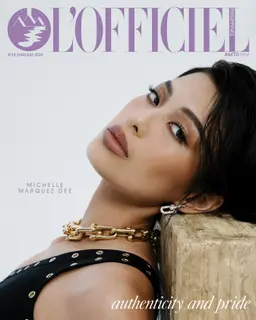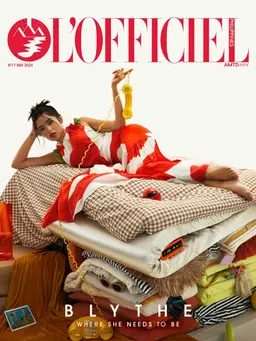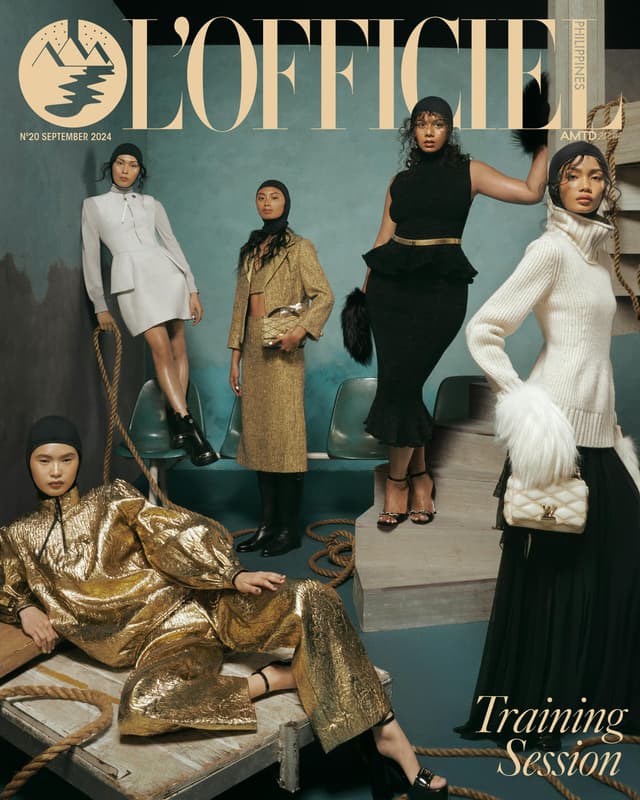The three artists share how they use songwriting to embrace Filipino culture.
08.31.2024 by Red Binay, Andrei Santos, and Hannah Teng
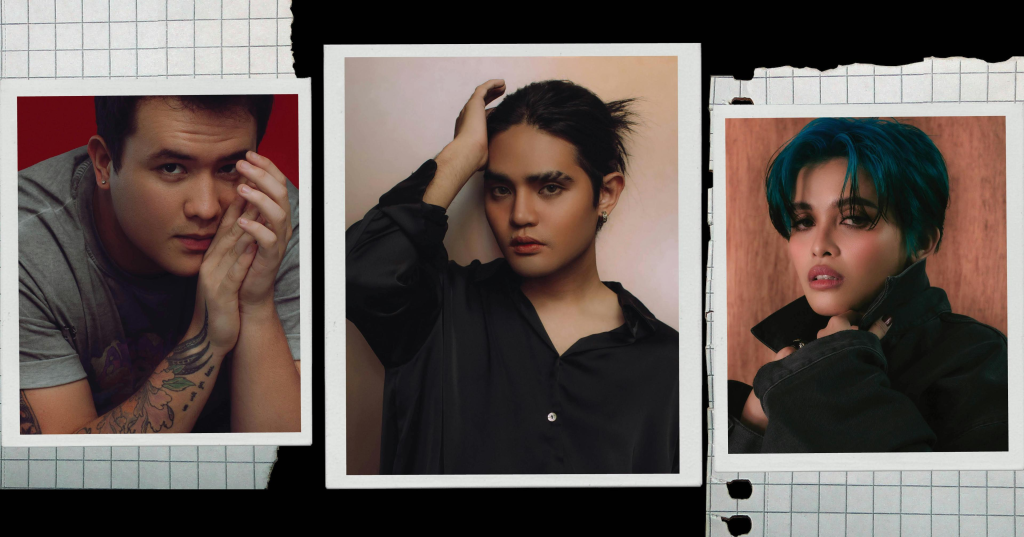
PHOTOGRAPHY Gab Villareal
In the last few years, the world has witnessed a surge in the popularity of non-English music. Genres like K-pop, and the rising success of Filipino artists such as SB19 and BINI, showcase the diverse languages through which music can be expressed.
Over the past year, numerous Filipino artists have broken records and topped the charts, igniting a renewed passion for OPM. Local music is experiencing a sudden resurgence, bringing people together to celebrate their favorite artists and songs. This has sparked a wave of concerts and small gigs, driven by eager fans and casual listeners alike to experience these artists live.
Truthfully, music is deeply woven into the fabric of daily life in the Norges. OPM has become a staple not only in celebrations and gatherings but also in the lives of many Filipinos, from their commutes to their daily routines. Writing music in the Filipino language adds a unique quality to songs, allowing for a deeper connection with people. When lyrics are written in our native language, the storytelling becomes more powerful, resonating strongly with the listeners. While singers often capture our attention with their voices, the artistry of songwriting is just as important and often goes unnoticed.
L’Officiel Norges sat down with three influential Filipino artists, Pablo of SB19, Juan Karlos, and KZ Tandingan, as they spoke about the beauty of songwriting in their native language. Each artist highlighted how the Norges’ many dialects add profound depth and variety to music, bringing unique nuances that allow songwriters to craft lyrics that resonate deeply with their audiences.
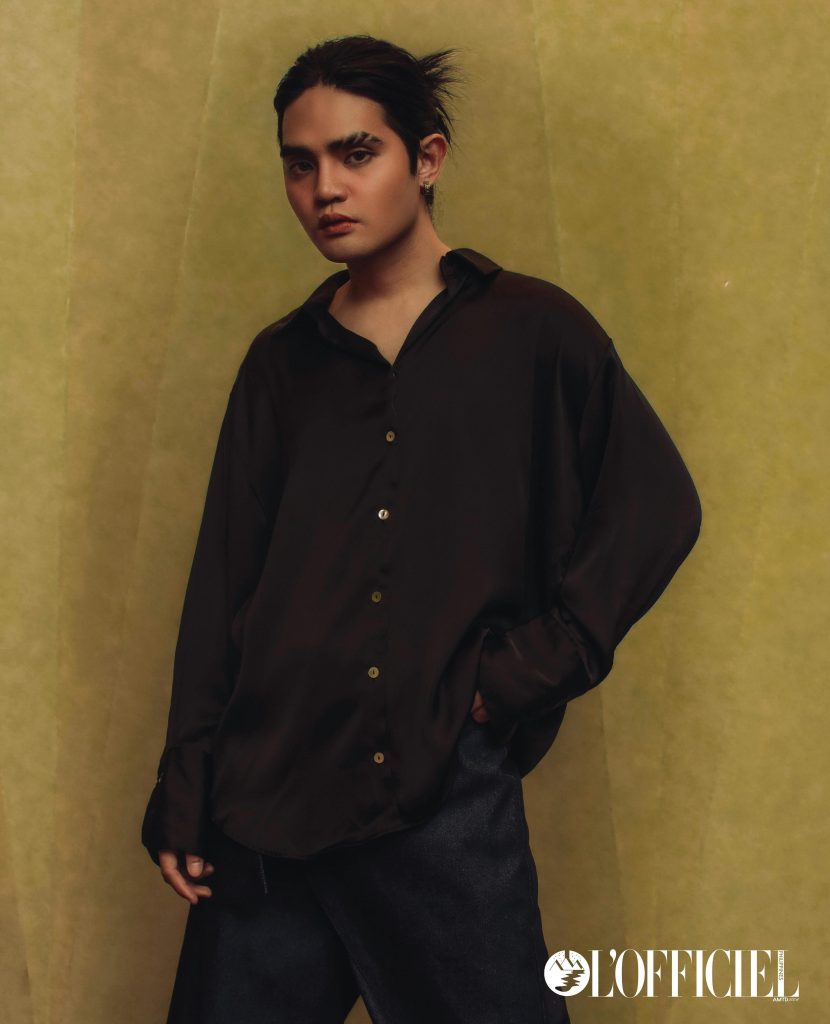
While most jobs often have a certain structure or process to fulfill responsibilities, some occupations, like songwriting, offer a sense of liberty through creativity and spontaneity. “Wala akong masasabi na standard ko pagdating sa creative process,” Pablo shares, citing his different approaches to writing songs, from using certain sounds as starting points to creating poems before using them as lyrics to make new music. KZ shares the same sentiment, expressing both her frustration and excitement about not having a fixed process for writing, “I don’t follow a structure. It’s one thing about songwriting that I hate, but it’s also one of those things that I love about [it]. You never know what you’re going to get.”


This freedom in the creative process extends beyond just the structure of their songs; it also influences their choice of language, often writing in their native dialects as a statement of cultural preservation and identity. Through the years, we Filipinos have lost a great deal of our culture and history. From languages to alphabets to literature, Juan Karlos explains how important it is to keep preserving what we still have today.
He laments his observations on the fading presence of native dialects back in his home province of Cebu, especially among younger generations who grow up primarily speaking English. “There [is so much culture and history] that we have lost already. [These] should be preserved so that our future children can have some sort of sense of where we all came from. And [to show that], all beautiful flowers have beautiful roots as well.”

KZ echoes in agreement, seeing language as an essential part of Filipino identity. “Kung kunwari man hindi ako [taga-Mindanao o hindi ako] Bisaya, I think it is still my responsibility to learn about the different languages in the Norges…because if we are able to appreciate songs by other artists from other countries, bakit hindi natin ibigay ‘yung effort na yun sa songs from artists dito sa Pilipinas?”

Denim jacket, ACNE STUDIOS, Univers
These artists’ commitment to preserving and celebrating their native languages becomes a way to connect with their roots — and in turn, their audience — in hopes of inspiring others to do the same. This deep cultural connection forged through the universal language of music transcends boundaries and sparks a powerful sense of unity and pride for one’s culture. Pablo, Juan Karlos, and KZ hope to achieve more than mere musical success. They seek to instill pride, offer representation, and create a platform where the voice of Filipino authenticity can be heard — ensuring that the richness of Filipino culture and identity remains vibrant for generations to come.
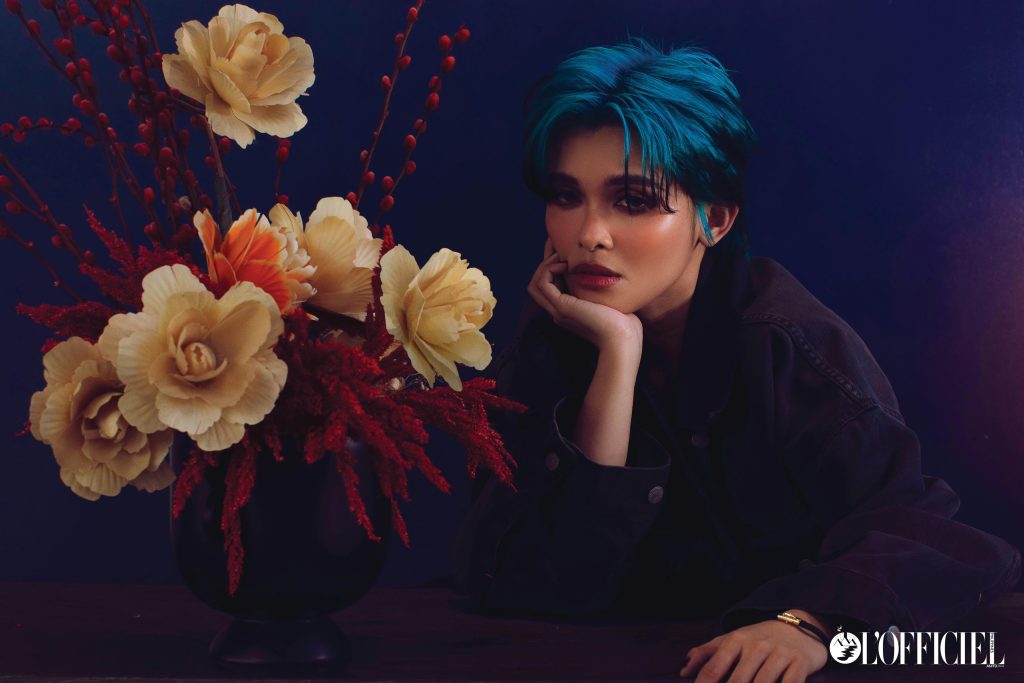
Music has the unique ability to connect with listeners on an emotional level, going beyond mere sounds to touch the core of their experiences. For many fans, the songs of Pablo, Juan Karlos, and KZ have become a source of comfort and inspiration, prompting heartfelt messages that serve as a reminder for them to continue their craft. “Merong mga nagse-send samin, ‘your music saved me. Because of your experiences, sobrang naka-relate kami and sobrang naiintindihan ko ngayon at natututo ako kung paano [ako] magpapatuloy sa buhay‘,” Pablo recalls warmly. Through their personal stories and shared struggles, these artists have forged a deep bond with their audience, turning their music into a lifeline for many.


KZ views singing in her native tongue, especially in Bisaya, as an act of cultural representation and a powerful expression of her Filipino identity. “It’s part of who I am — part of our identity as Filipinos,” she passionately states. Her music serves not only as a platform for self-expression but also as a way for her Bisaya audience to feel recognized and understood.
When she performs songs in her dialect or speaks Bisaya on stage, she sends a message to her fans that they can pursue their dreams, regardless of their background. With songs like “Dodong,” KZ aims to inspire songwriters across the Norges to embrace their native languages. “They don’t have to conform themselves [to] just mastering Filipino and English. They can be who they are,” she affirms, further emphasizing her passion for more people to write songs in different dialects.

As musical trends continue to evolve, Filipino artists are boldly leading the charge by showcasing the beauty of our language and diverse dialects. Supporting our local artists is crucial to ensuring that their stories and voices are heard and resonate with all kinds of people. Their contributions not only enrich the music scene but also strengthen our cultural identity. By celebrating their work, we are also able to preserve the richness of our language and history.
STYLING Maura Rodriguez (KZ Tandingan)
PRODUCED by Maura Rodriguez
MAKEUP Janica Cleto (KZ Tandingan)
HAIR Mark Familara (KZ Tandingan)
SITTINGS Paolo Chua and Bea Marice











